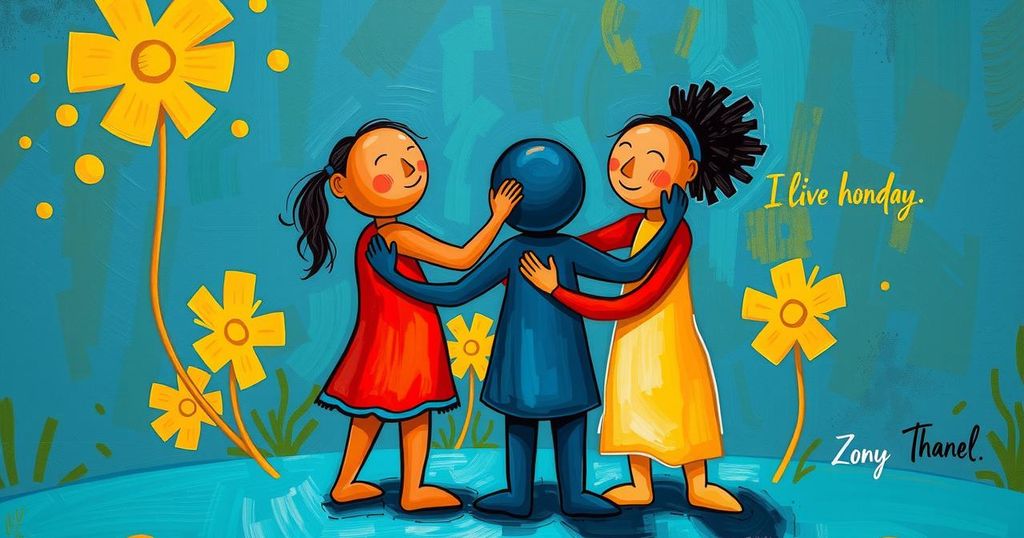The Impact of the Alien Enemies Act on Venezuelan Immigrants in the U.S.

Four Venezuelan friends, who fled their collapsing nation for a better life in the U.S., faced deportation under the Alien Enemies Act. Their families discovered their fate through a video of their forced removal to El Salvador, sparking outrage and fear among their loved ones. The situation raises significant concerns regarding immigration policies and the application of justice for innocent individuals.
Four friends from Venezuela, who grew up playing soccer together and supporting one another, pursued the American dream in Dallas amid their country’s turmoil. They found work and shared a home, but their newfound lives encountered a shocking obstacle when they faced deportation due to the Alien Enemies Act, invoked by former President Donald Trump. This act allowed for the swift removal of individuals without giving them an opportunity to defend themselves in court.
The predicament became apparent when Mercedes Yamarte, mother of one of the friends, identified her son in a video showing alleged gang members being forcefully removed from planes and taken to a prison known for human rights violations. Without warning, Yamarte and his companions were placed on a flight to El Salvador following Trump’s secretive use of a long-dormant wartime provision.
The White House has not confirmed whether the friends were indeed deported under the Alien Enemies Act, which has raised legal challenges from immigrant rights advocates. They demand transparency regarding the deportations and the criteria for identification as gang members. U.S. Immigration and Customs Enforcement (ICE) stated that they investigated each case before deportation, although it has been acknowledged that many deported individuals lack criminal backgrounds in the United States.
The friends, Yamarte, Ringo Rincón, Andy Javier Perozo, and Edwuar Hernández, all hail from the now-impoverished city of Maracaibo, Venezuela, and faced a deteriorating national situation before seeking refuge in the United States. They risked their lives to cross through Central America and seek asylum, driven by the hope of creating a better life for their families.
Their lives, centered around familial bonds, had begun to blossom in Dallas through work and shared moments. However, the sudden deportation threw their families into emotional turmoil. The young men were primarily family-oriented, and as concerns grew among their loved ones, fears of their well-being escalated.
The morning of their arrest was chaotic. Immigration officers surrounded their home, questioning them about tattoos—often wrongly associated with gang affiliation. Their families argue that the tattoos do not equate to gang membership, pointing to the targeting of individuals based on superficial indicators.
As the mothers learned of their children’s fate, despair enveloped them, overshadowing the joy they had anticipated upon their return. Each family member now longs for clarity and justice, while grappling with the heart-wrenching reality of what they witnessed. The anguish and fear reflected in their statements emphasize their ongoing fight for dignity and recognition amid the complexities of immigration laws and policies.
In summary, the ordeal faced by four Venezuelan friends exemplifies the harsh realities of immigration policies when invoked without due process. Their aspirations for a better life in the United States came to a troubling halt with their unexpected deportation under an archaic law. This situation raises significant concerns regarding the application of immigration laws and the treatment of individuals based solely on superficial traits rather than evidence of criminal activity. The anguish felt by their families highlights the human cost of such policies, emphasizing the need for justice and clarity in their cases.
Original Source: www.washingtonpost.com







